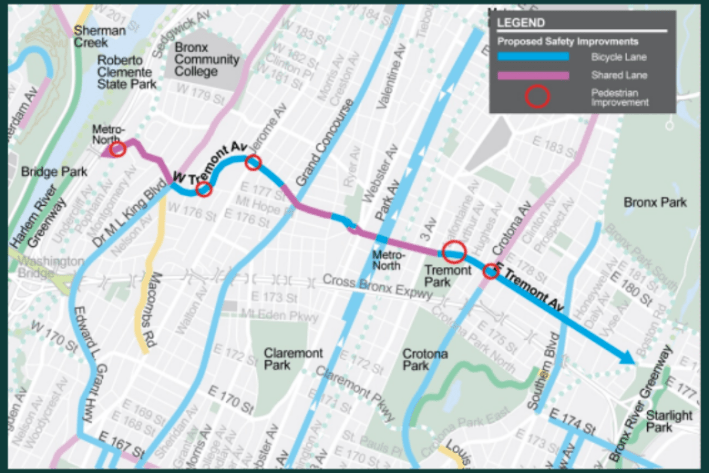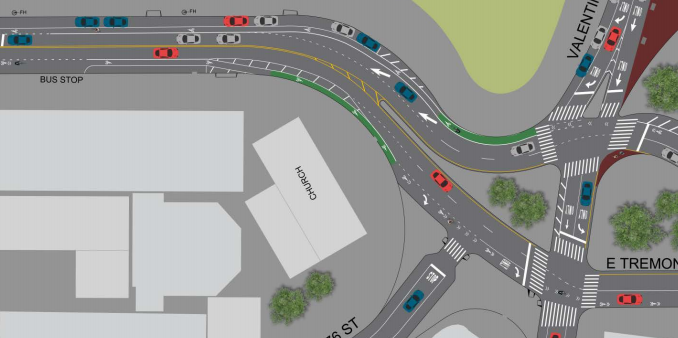
Last month, when Council Member Ritchie Torres lambasted DOT's deference to community boards over street safety projects, he anticipated a fight over the agency's plan for bike lanes on Tremont Avenue.
DOT presented its design for the western segment of Tremont Avenue to Bronx Community Board 5 on January 20 [PDF] and, the following day, presented the design for the eastern segment to Community Board 6 [PDF]. The project follows up on a 2014 request from Torres for a Tremont Avenue bike route spanning the width of the South Bronx, though it only covers the section between the Harlem River and the Bronx River.
The redesign calls for painted bike lanes and sharrows along a 4.1-mile stretch of Tremont Avenue between Cedar Avenue and Boston Road. Once the new designs are implemented, Tremont Avenue will be the northernmost crosstown bike route in the West Bronx.
DOT has identified Tremont as a Vision Zero priority corridor. From 2010 to 2014, 10 cyclists, 33 pedestrians, and 36 motor vehicle occupants were killed or severely injured in the project area. The proposal includes safety improvements at multiple intersections: Sedgwick and Undercliff, the Grand Concourse underpass, and Tremont’s intersections with Grand Avenue, Jerome Avenue, Park Avenue and Crotona Avenue.
Most of the route will be painted bike lanes, with sharrows accounting for a little less than a mile. Moving east from Cedar Avenue, the design consists of a shared lane before shifting to dedicated lanes that run from MLK Boulevard to Morris Avenue. Beginning at the Grand Concourse underpass, cyclists will again have to share a lane with cars, but DOT is installing traffic-calming treatments, including narrower motor vehicles lanes and curb extensions.

It's not protected, all-ages bike infrastructure, but Torres welcomed DOT’s plan as a marked improvement over the existing conditions. “I see [this project] as a down payment, as laying the foundation for an eventual bike network that spans all of Tremont Avenue.” he told Streetsblog.
He commended DOT for responding to his request, but reiterated his desire that city officials not let community boards stand in the way of public safety. “We should notify and engage the community boards but I reject the notion of giving them veto power.” he said. “As far as I’m concerned elected officials are far more representative than even community boards. DOT has the political backing here and DOT... to its credit forged ahead with the project enthusiastically.”





